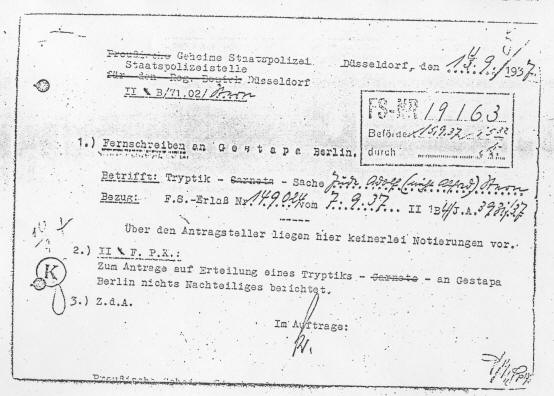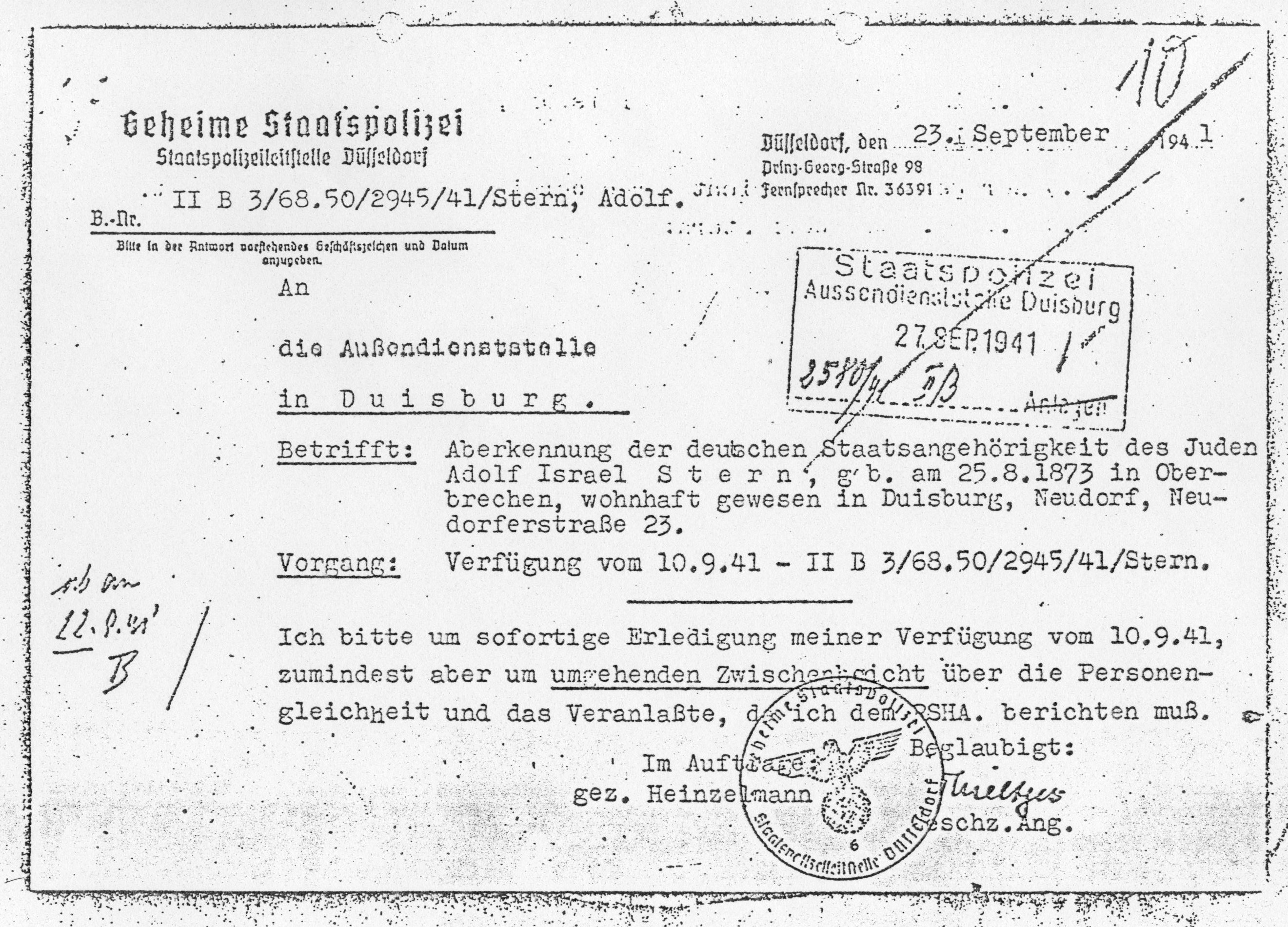
 |
A page from the file kept on Adolf Stern at
the Dusseldorf office of the "Staatspolizei." The file contained
information about Stern's property holdings and other wealth. When
Stern and his wife Dora left Germany in late 1937 to visit their son
Gustav in Paris, the German government kept track of their activities,
and reported information to the Gestapo. This document notes that
the Sterns had been granted a permit to travel outside Germany.
|
 |
Another document in the "Staatspolizei" file on Adolf Stern, this one dated September 23, 1941 and confirming that Stern's German property (valued in excess of 30,000 marks) had been seized by the German government.Other documents in the file disclosed the Sterns residences in France. Had the entire Stern family -- Adolf, Dora, Gustav, Gertrude, Hans (John) and Michael -- not been able to leave France at the end of 1941, they would doubtless been "relocated" to one of the death camps in the east during 1942. |